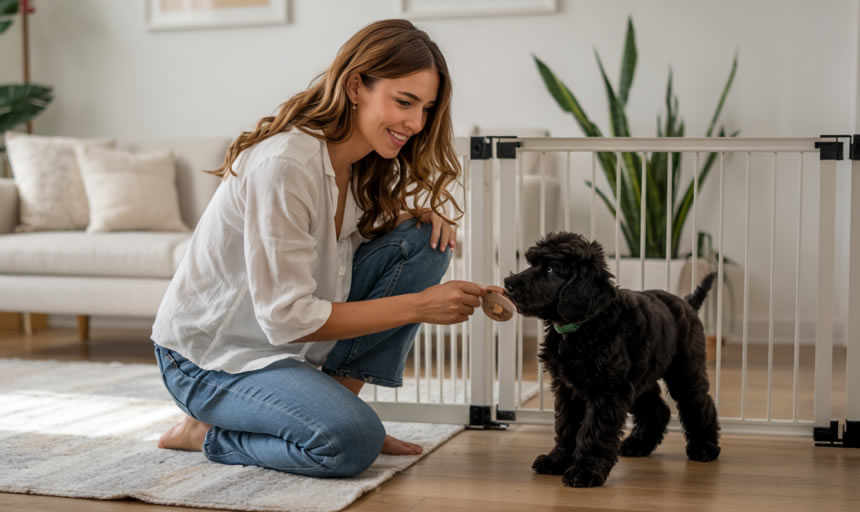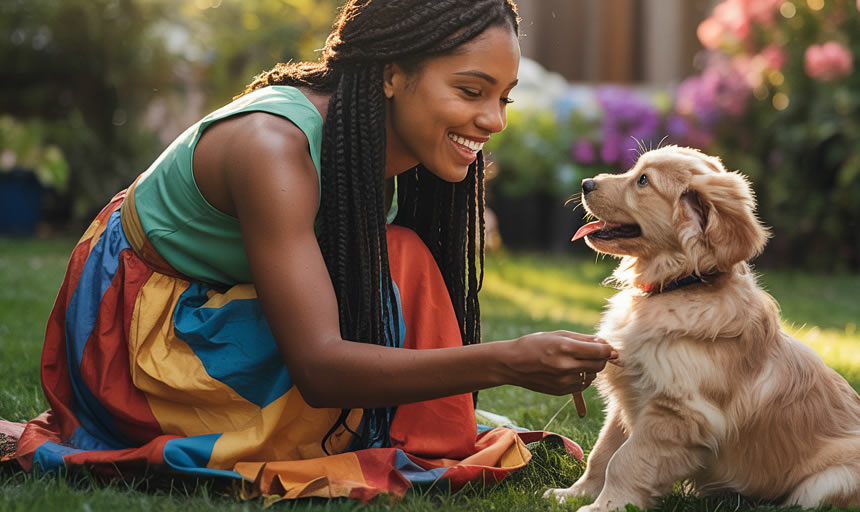The First Day: Welcoming Your Pup Home with Confidence

Bringing home a new puppy is a joyful experience, but it also comes with responsibilities. A well-cared-for puppy grows into a happy, well-behaved dog. Here’s everything you need to know about raising a puppy the right way.
Basic Needs
Puppies need a balanced diet to support their rapid growth. Feed them high-quality puppy food at regular intervals, ensuring they stay hydrated. Sleep is crucial, with puppies requiring up to 20 hours of rest per day. Set up a cozy crate or bed to help them feel secure. House training is another essential task—take them outside every 2-3 hours and reward good behavior with praise or treats.
Health & Veterinary Care
Regular vet visits are a must. Puppies need vaccinations at 6-8 weeks, 10-12 weeks, and 14-16 weeks to protect against diseases. Flea and deworming treatments should be part of their routine. If you plan to spay or neuter your puppy, consult your vet about the best time, usually around six months of age.
Training & Socialization
Start training early with basic commands like “sit,” “stay,” and “come.” Short, positive sessions yield the best results. Socializing your puppy with different people, pets, and environments helps prevent fear and aggression issues later in life. Crate training can also be beneficial for house training and providing a safe space.
Puppy Behavior & Development
Expect energetic bursts known as zoomies, which help burn excess energy. Puppies also go through fear periods, where they might suddenly become cautious. Stay patient and reassuring during these phases. Since puppies chew a lot while teething, provide chew toys to prevent damage to household items.
Safety & House Rules
Puppy-proof your home by removing toxic plants, securing electrical cords, and keeping small objects out of reach. Establish house rules early, such as designated sleeping areas and whether they’re allowed on furniture. A consistent routine fosters confidence and obedience.
Raising a puppy requires patience and commitment, but the companionship and love they offer make the effort worthwhile. By focusing on their basic needs, training, and health, you’ll ensure they grow into a well-adjusted adult dog.
The First Day: Welcoming Your Pup Home with Confidence

Bringing home a new puppy is a joyful experience, but it also comes with responsibilities. A well-cared-for puppy grows into a happy, well-behaved dog. Here’s everything you need to know about raising a puppy the right way.
Basic Needs
Puppies need a balanced diet to support their rapid growth. Feed them high-quality puppy food at regular intervals, ensuring they stay hydrated. Sleep is crucial, with puppies requiring up to 20 hours of rest per day. Set up a cozy crate or bed to help them feel secure. House training is another essential task—take them outside every 2-3 hours and reward good behavior with praise or treats.
Health & Veterinary Care
Regular vet visits are a must. Puppies need vaccinations at 6-8 weeks, 10-12 weeks, and 14-16 weeks to protect against diseases. Flea and deworming treatments should be part of their routine. If you plan to spay or neuter your puppy, consult your vet about the best time, usually around six months of age.
Training & Socialization
Start training early with basic commands like “sit,” “stay,” and “come.” Short, positive sessions yield the best results. Socializing your puppy with different people, pets, and environments helps prevent fear and aggression issues later in life. Crate training can also be beneficial for house training and providing a safe space.
Puppy Behavior & Development
Expect energetic bursts known as zoomies, which help burn excess energy. Puppies also go through fear periods, where they might suddenly become cautious. Stay patient and reassuring during these phases. Since puppies chew a lot while teething, provide chew toys to prevent damage to household items.
Safety & House Rules
Puppy-proof your home by removing toxic plants, securing electrical cords, and keeping small objects out of reach. Establish house rules early, such as designated sleeping areas and whether they’re allowed on furniture. A consistent routine fosters confidence and obedience.
Raising a puppy requires patience and commitment, but the companionship and love they offer make the effort worthwhile. By focusing on their basic needs, training, and health, you’ll ensure they grow into a well-adjusted adult dog.






